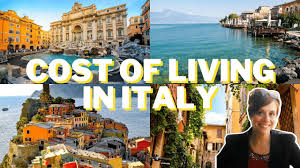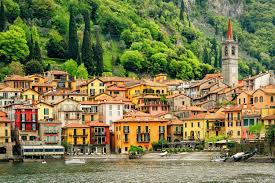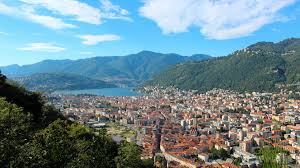The cost of living and real estate landscape in Italy

Rome: Italy has always been a highly desired location for tourism, residence and property purchase. With its picturesque landscapes, artistic and cultural importance, and rich history, it checks the boxes for many expats. Foreigners are also drawn to the mild Mediterranean climate and lower cost of living, making Italy a popular destination for retirees. To examine this subject further, this article will break down the cost of living in Italy as well as the current and future real estate landscape.
The cost of living in a country is generally tied to its average salaries, CPI (consumer price index), inflation and overall economic health. In fact, Italy has the third largest economy in the European Union with a steadily growing GDP (gross domestic product). However, the cost of living remains low in Italy, particularly compared to countries such as the United States and the United Kingdom. This is mostly because the average salaries in Italy are close to half what they are in the United States, for example. According to Statista, in 2023 the average salary in Italy was €32,450, and according to the Bureau of Labor and Statistics (BLS), the average in the United States was $65,470 (the average euro to dollar exchange rate in 2023 was 1.08).

Key components of your cost of living include housing accommodation, utilities, transportation and food. Of course, your expenses can vary greatly depending on location and lifestyle, but generally speaking prices in Italy tend to be less than in the United States. Italians spend about €200 on utilities per month, which can be higher in the winter due to heating. Internet and phone bills are also much less in Italy than in the US, where households can spend at least $100 per month, whereas in Italy, the average spend is €46.
Another factor that can lower your cost of living in Italy is healthcare. Public universal healthcare is free in Italy for residents, with specialists and lab testing available for a minimal fee. Not having to pay expensive monthly healthcare premiums, such as in the US, can significantly lower your cost of living in Italy.
An additional consideration is the low-cost, high-quality education in Italy. The public primary, middle and high schools are free and the state universities are very reasonably priced. University costs can average a few thousand, or even a few hundred euros per year in Italy versus significantly higher tuitions in the United States. Furthermore, the universities in Italy are world-renowned, including the University of Bologna, one of the oldest in the world, and the University of Padua. Even the tuitions for private universities, such as the Bocconi University in Milan or Luiss Guido Carli University in Rome, usually range between €10,000 to €15,000.
A major component of the cost of living is your housing accommodation, such as rent or mortgage payments, and taxes. Renting or buying real estate in Italy is generally less expensive than in the United States. However, the prices can vary depending on the location. Prices in large cities like Rome and Milan are going to be much higher than in smaller towns. Also, in general, the north of Italy tends to be more expensive than the south of Italy. When renting property, these major cities can range between €700 to €1,100 for a one-bedroom apartment, while in a small- to medium-sized town, the same apartment could cost between €500 and €900.

In regards to buying a house in Italy, according to Idealista, Italy’s leading property portal, 48% of the house listings for sale on Idealista in the fourth quarter of 2023 were priced below €150,000. Furthermore, they report the average price of a home in 2024 at €1,857 per square meter. Idealista adds that 2024 real estate prices have increased by 2.1%, and a recent analysis based on Eurostat data reports that in the last 10 years, Italy has had one of the lowest price increases of the European Union, second to last ahead of Finland. These prices vary greatly, particularly among the major metropolitan cities, where the largest price increases are seen in Milan and Rome. However, when compared throughout Europe and the UK, even prices in Milan on average remain 15% less than those in London.
Italy continues to be a popular country for foreigners looking to invest in real estate or pursue alternate residency. Expats are attracted to the many options Italy presents, whether a bustling city center or a quiet countryside village, coastal living or a mountain retreat. Italy offers a landscape and housing option for every lifestyle and budget.
It’s important to look at the driving factors that influence a real estate purchase decision and, ultimately, affect its price. Buyers are often attracted to in-demand locations like city centers or prime neighborhoods that offer other amenities and cultural appeal. Also, the physical condition of the property and its age are important factors that contribute to its investment potential.
Throughout 2024, the number of property sales has steadily grown, with transactions increasing by 1.2% compared to last year, according to the Real Estate Market Observatory (OMI) of the Italian Revenue Agency. This trend is expected to continue into 2025, with the ever-present demand from foreign buyers who are interested in investing in a piece of the Italian real estate market.
Americans may wonder if there are any restrictions to buying a property in Italy if they are not an Italian citizen or resident. In fact, Americans can buy property in Italy due to the principle of reciprocità, meaning you can purchase property in Italy if there is an international treaty between Italy and your country, such as the US, that allows this reciprocity. However, non-EU citizens can only spend 90 days in Italy without a visa. Purchasing property in Italy does not allow you to reside past this 90-day limit or automatically grant you legal residency. For periods of residence longer than 90 days, a long-stay visa would be necessary, such as the Elective Residency Visa, which requires the applicant to have a residence (home or rental) in Italy.
Purchasing real estate in Italy can have many advantages, whether for a summer getaway, retirement or as an investment opportunity. It’s important to take all aspects into account before making a decision, such as the cost of living in different regions of the country and the current landscape of the real estate market.





